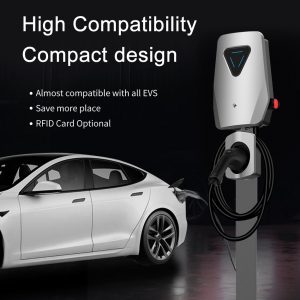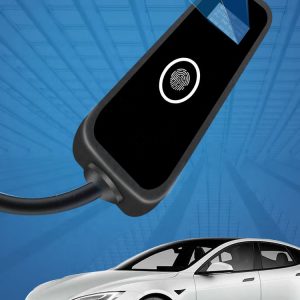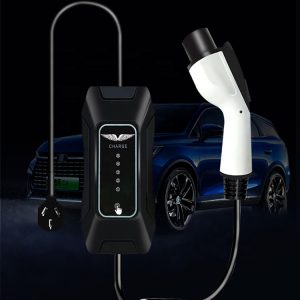
Getting into electric cars is like opening the floodgates – new EV terminology, jargon, and abbreviations come flowing so fast that it can take a lot of work to keep up.
That’s why we put together this no-nonsense guide to the EV terms you’ll run into the most as you research, purchase, and enjoy your new car. So, if you’ve ever wondered how volts and amps factor into charging or what in the world kWh means, read on — this one’s for you!
Five Terms to Know About EV Charging
Let’s do a little thought experiment to make EV charging simpler. Imagine for a moment that you drove a car powered by water. Now imagine refilling your car with a typical garden hose. EV charging is surprisingly similar!
Let’s break this comparison down further.
1. Amp
Amp (or ampere) is the unit used to measure electrical current. You can think of current as the volume of water flowing through your garden hose. Just as wider hoses can handle more water volume, high amperage chargers can draw a faster flow of electrons from your power source to your vehicle.
2. Volt
Volt describes the potential of energy. Using our “water car” analogy from above, volts can be seen as the water pressure. An increase in water pressure translates to a more powerful spray, and an increases in voltage translates to more powerful and speedy charging.
3. Kilowatt
Kilowatt, or just kW, is a measure of how much power an electric appliance consumes.
4. Energy (kWh)
Kilowatt-hours (kWh) refer to the amount of energy consumed over one hour of charging.
Using our analogy, killowatt-hours equates to the total amount of water that passes through the hose in an hour. Higher kWh chargers allow EV owners to recharge their cars significantly faster. The kWh can be calculated using a basic formula: amp x volt = kWh.
5. State of Charge (SoC)
State of Charge, often referred to as SoC.
Your SoC describes how full your EV battery is using percentages from 0-100. This makes SoC the perfect EV stand-in for the traditional fuel gauge and a handy charging tool.
Three Terms to Know About EVs
1. Power
Power is measured in a unit called watts. Watts describes the transfer rate of energy, much like another term you’re probably more familiar with – horsepower.
Like horsepower, watts can be used to easily conceptualize the power (meaning speed, torque, acceleration, etc.) of an EV. Because electric cars require a fair amount of power, they are typically rated in kilowatts. (1,000w) The equation for using kilowatts (kW) to find horsepower is (kW x 1.369 = Horsepower).
2. Maximum Range
Maximum range is how far your EV can go on a single charge.
EV shoppers should make sure they have a clear picture of their daily commute and traveling habits to ensure their new vehicle’s range aligns with their lifestyle. Research indicates the average American only drives about 40 miles a day – meaning even EVs with the shortest range on the market would suit the needs of most US drivers.
3. Maximum Charge Rate
The maximum charging rate describes the electricity acceptance limit of a vehicle, which means the amount of power it can process when charging. If your maximum charge rate is 50kW (a pretty standard rate), then fast-chargers capable of generating north of 150kW will be limited to your rate.













